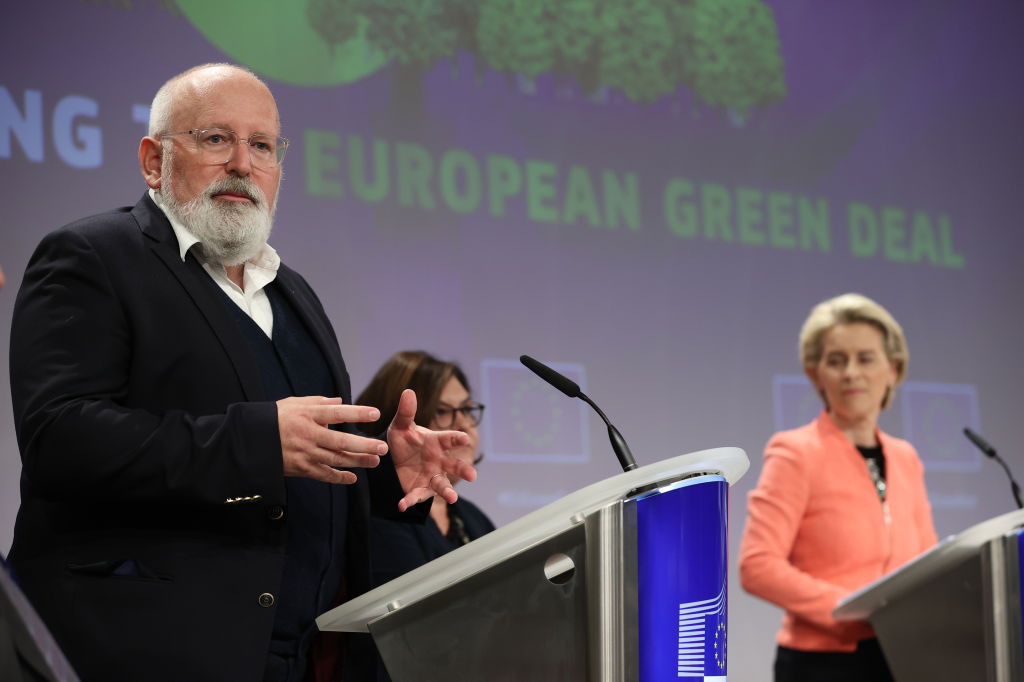The perennial battle between reality and platitudes is going into its next round, and if the past is anything to go by, reality will win again. The Dutch politician and architect of the “Green Deal” in Europe, Frans Timmermans, has recently proposed that the wealthy should pay for the much vaunted “energy transition” to stop the growing support for “dishonest” radical Right-wing parties.
Calling for the rich to foot the bill is certainly better than saying the poor should pay, but Timmermans fails to specify who he has in mind. If he has further taxes in mind for corporations and manufacturing industries, it will only accelerate the decline in Europe’s competitive edge. What sounds nice in principle is a little harder in practice.
The Dutch politician added that “the [ecological] transition will be stopped by European voters” who are angry at how much it costs. Given the fact that energy costs determine the price of everything else, it is no surprise that a misguided energy policy would at some point lead to a political backlash. By Timmermans’s own admission, rising energy costs have become a boon for Right-wing parties, such as the AfD in Germany, the Freedom Party in Austria and the National Rally in France. But he doesn’t believe that the cost of the energy transition — around $9.2 trillion per year until 2050 (7.5% of global GDP), according to McKinsey estimates — should result in a slower transition. Indeed, he forced through green policies at breakneck speed as an EU bureaucrat.
Timmermans is not the only European politician to subscribe to utopian ideas of clean energy abundance. Recall UK Energy Secretary Ed Miliband’s “rooftop revolution” of solar power or former Prime Minister Boris Johnson’s claim that Britain would become the “Saudi Arabia of wind”. Meanwhile, Germany has experienced first-hand the disaster of abandoning nuclear only to be reliant on Russian gas and burning coal. The crux of the matter is that unless there is a revolution in battery storage technology, the energy transition will be plagued by high prices and rationing.
In whichever areas the Right-wing populists have been dishonest — and there are no doubt many — Europe’s ruinous energy policy is not among them. Alice Weidel, the leader of Germany’s AfD might be exaggerating when she calls for the destruction of wind farms, but many voters remain frustrated with the price of renewables and the undemocratic ways that the green transition has been forced upon them. Timmermans himself implicitly admits that one of the core promises of the green transition, namely cheap and reliable energy, cannot be fulfilled. If something is getting cheaper, why would you need the wealthy to subsidise it for the poor? The truth is that despite their noble intentions, the proponents of the Green Deal pushed for an inflationary policy that was always bound to hurt low-income earners the most.
What is frustrating, however, is the persistent unwillingness of Timmermans and his ilk to admit their mistake. Instead, they double down and insist on a continuation of the very policies that are failing. It is no wonder that people are increasingly suspicious of whether this is by design or not. If energy prices are three to four times what they are in China or the US, and certain politicians still claim that Europe’s strategy is working, those making these claims must be driven either by malice, incompetence, or a combination of both.
Ultimately, current support for Right-wing parties has less to do with their dishonesty than with that of their opponents. Almost every mainstream politician in Europe promised a sustainable economic expansion based on green policies, and now they are changing their tune, saying that it will take additional sacrifices while the potential benefits are indefinitely postponed. The Timmermans-style bureaucrats would be more credible — and may actually halt the rise of the populist Right — if they would admit their own dishonesty before levelling the charge at others.











Join the discussion
Join like minded readers that support our journalism by becoming a paid subscriber
To join the discussion in the comments, become a paid subscriber.
Join like minded readers that support our journalism, read unlimited articles and enjoy other subscriber-only benefits.
Subscribe